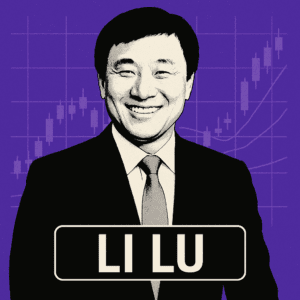
LI LU – HIMALAYA CAPITAL MANAGEMENT Q3 2025 PORTFOLIO
Himalaya Capital Management, a value investing firm managed by Li Lu, disclosed 9 security holdings in its Q3 2025 13F filing, with a total portfolio value of $3,230,264,839.
Li Lu’s Himalaya Capital Management
As of Q3 2025, Li Lu’s portfolio at Himalaya Capital Management demonstrates remarkable conviction and patience, maintaining all nine positions completely unchanged while benefiting from strong market performance. The portfolio surged 20% in value from $2.69 billion to $3.23 billion, driven entirely by price appreciation rather than trading activity. This strategic hold reflects Li Lu’s confidence in his existing positions following Q2’s transformational addition of PinDuoDuo, as he allows his concentrated bets to compound.
Top Holdings
Portfolio Strategy Analysis
Q3 2025 represents a masterclass in Li Lu’s investment philosophy: do nothing when you own the right businesses. After Q2’s transformational PinDuoDuo addition and the dramatic Bank of America reductions in Q1-Q2, Li Lu made zero portfolio changes in Q3. This strategic patience allowed his concentrated positions to compound, generating a 20% portfolio increase to $3.23 billion purely through price appreciation. The decision to remain inactive speaks volumes about Li Lu’s satisfaction with his current allocation and confidence in his nine holdings.
The combined Alphabet positions (both Class A and Class C shares) surged to represent 37.62% of the portfolio, making it by far the largest concentration. This dramatic increase resulted entirely from Alphabet’s 38% price appreciation during Q3 rather than additional buying. Li Lu’s decision not to trim despite this concentration growth demonstrates extraordinary conviction in Google’s AI capabilities, search dominance, and long-term competitive position. The dual-class holding strategy continues providing both economic exposure and voting rights while Alphabet becomes an even more dominant portfolio anchor.
The decision to hold PinDuoDuo completely unchanged in Q3 validates Li Lu’s Q2 entry timing and conviction. PDD delivered 26% returns during the quarter, outperforming most global markets and demonstrating the strength of its business model. Rather than taking profits after such gains, Li Lu maintained the full 18.85% position, suggesting he views current valuation as reasonable relative to PDD’s long-term growth trajectory. This hands-off approach after a major position addition is classic Li Lu: make bold moves when conviction is high, then let compounding work.
After aggressively trimming Bank of America in Q1 (23.42%) and Q2 (24.66%), Li Lu held the position steady in Q3, suggesting his rebalancing is complete. BAC now sits at 16.66% of the portfolio, apparently Li Lu’s target allocation after the systematic profit-taking that funded the PDD purchase. The fact that he didn’t trim further despite having sufficient gains suggests 16-17% represents his preferred weighting for this financial services anchor. This stability after two quarters of aggressive selling indicates strategic rather than fundamental concerns drove the earlier reductions.
Conclusion
Li Lu’s Q3 2025 portfolio tells a powerful story of disciplined inaction and conviction. After Q2’s bold transformation with the massive PinDuoDuo addition, Li Lu made the strategic choice to change nothing, allowing his concentrated positions to compound. The resulting 20% portfolio surge to $3.23 billion came entirely from price appreciation, validating his position selection and timing.
The portfolio’s evolution showcases Li Lu’s investment philosophy at its finest: Alphabet surged to 37.62% concentration through performance alone, yet Li Lu didn’t trim despite the massive weighting. PinDuoDuo delivered strong returns and remained unchanged, confirming his entry conviction. Bank of America stabilized after systematic reductions, indicating completed rebalancing. Every other position—Berkshire Hathaway, East West Bancorp, Occidental Petroleum, and the smaller holdings—remained untouched.
With just nine positions and extreme concentration in his top holdings, Li Lu continues demonstrating that exceptional returns come from owning a few outstanding businesses and doing nothing when you’re right. The Q3 inactivity wasn’t passivity—it was strategic patience, allowing his carefully constructed portfolio to maximize compound returns. This hands-off quarter following Q2’s transformation perfectly illustrates value investing’s greatest paradox: sometimes the best action is no action at all.
Himalaya Capital Management LLC Portfolio Analysis
Based on 13F filing for reporting period: Q3, 2025
Portfolio Manager
Li Lu
Filing Date
November 12, 2025
Total Value
$3,230,000,000+
Number of Positions
9
Portfolio Allocation
Holdings Breakdown
| Rank | Company Name | % of Portfolio | Q3 Activity | Ticker | Shares | Market Value ($) |
|---|




